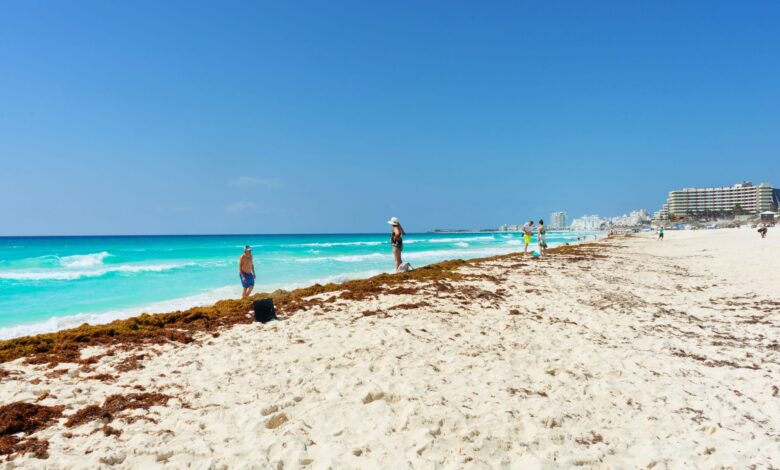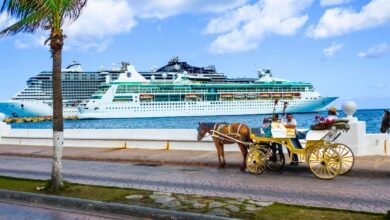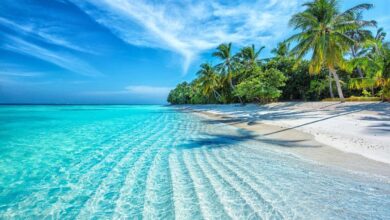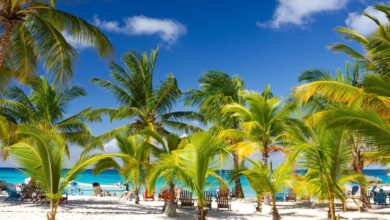Mexican hotel association refuses to continue paying for Sargassum cleaning

The Riviera Maya Hotel Association can no longer do this bear the financial responsibility to clean up sargassum each season, a spokesperson said.
The presence of macroalgae in the Sargasso Sea has been reported for more than five centuries, but it was only in 2011 that it began washing up en masse on Caribbean beaches.
Scientists estimate that this phenomenon is occurring due to rising ocean temperatures and over-nutrified water from large-scale agricultural industries in countries such as Brazil and the United States.
Technically, sargassum arrives in so-called federal zones, so hotels in the Mexican Caribbean don’t have to pay for its collection and disposal.
Every algae season, the government and hotel leaders join forces to keep the beaches tidy by hiring hundreds of local cleaners and using ocean barriers and ‘sargassum ships’.
But with their revenues affected, hotels want to report the problem to the government, as they should be by law, hoteliers say.
“I’ve been saying this for over three years now. We, the hotel sector, cannot continue to pay [sargassum] collection from my own pocket. We cannot continue to pay for this problem.” said Tony Chaves, head of the Riviera Maya Hotel Association.
“We’re talking about $120 million. It costs two billion pesos a year, which is simply unaffordable.”
The decomposing sargassum creates un-Instagram-worthy beaches and releases unpleasant odors that deter tourists from visiting the island. As a result, hoteliers and local economies are seeing their profits negatively affected.
In 2021, BBVA warned federal, state and local governments, as well as the Mexican private sector and the “Greater Caribbean” of the need to “have plans, actions and resources ready” to deal with the inevitable sargassum problem.
Three years later, institutions have only begun to pay real attention to a phenomenon that isn’t going anywhere.
From July 18 to 19, the country held the “National Forum Mexico-European Union 2024”, which aimed to find disruptive strategies to turn sargassum into business opportunities and limit its arrival to Caribbean shores.
Organizers included representatives from the EU, the Secretariat of Ecology and Environment (SEMA), the CAF Development Bank of Latin America and the Caribbean, and the organization The Seas We Love.
For its part, the IDB Group, together with other agencies, is ready to provide “entrepreneurs, start-ups, corporations, academic institutions and non-profit organizations” with financing of up to $500,000 for business proposals that can effectively mitigate and generate revenue from the sargassum problem.
Regarding these initiatives, Chaves noted: “[Participants] should be given easy access to do all this. We must avoid putting obstacles in the way of the initiatives that can solve this enormous problem that we now have in the Mexican Caribbean. We call on the authorities to help streamline these types of projects.”




